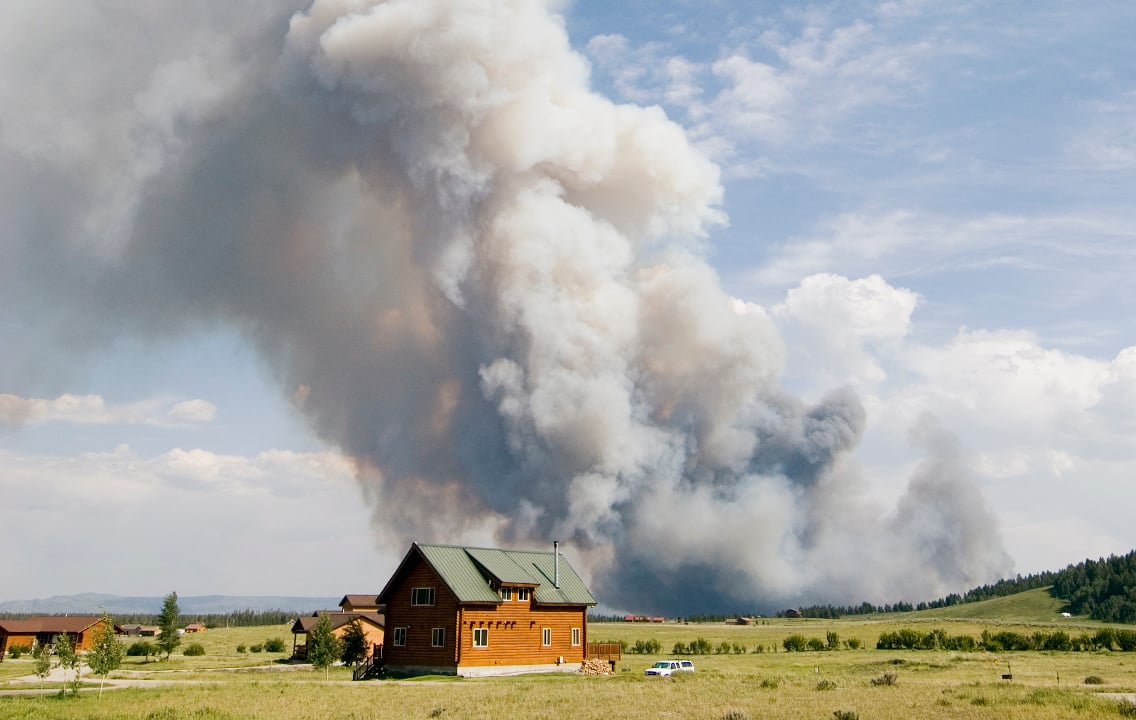Thanks to a growing telecommuting industry, working rural is becoming more accessible than ever.
Think back to those pre-Internet days of say, the early ’90s, when working while living in the country often meant either farming or a long commute to town. Over the course of the last 20 years, the connectedness that has come with widespread broadband has opened up infinite channels for doing business across town and around the globe—right from your dining room table.
The industry around telecommuting is booming. According to Gallup's 2015 Work and Education poll, 37 percent of U.S. workers say they have telecommuted. That’s up from just 9 percent in 1995.
While get rich quick schemes and less-than-credible work from home popup ads abound online, for those willing to work independently or work for legitimate organizations, today’s technology makes living the rural life while supporting yourself a real possibility.
Here are 13 non-ag ideas for those who want to live rural and make a living:
1. Strike a deal with your current employer to work from your home in the country.
If you currently work at an office job where at least some of your work can be accomplished online or via conference call, you may be able to join the ranks of workers who telecommute part time. According to Gallup, “An increasing number of employers allow workers the flexibility to do their job remotely if it is feasible for their position.”
And while staying home is a boon for you, it may also benefit your employer. Gallup's workplace research shows that employees who spend at least some time working remotely are more likely to be engaged in their jobs than those who never work remotely. Win, win!
2. Work for a company that supports remote workers.
According to Flexjobs.com, “Telecommuting job listings increased a solid 36 percent from 2014 to 2015.” The website puts out an annual list of the 100 top companies with remote jobs. Among the big players in 2016: Amazon, Dell, Cigna, and the U.S. Department of Transportation. Their currently open telecommuting positions range from part- to full-time and cover a wide variety of backgrounds and skill sets.

3. Start your own online business.
Starting a business isn’t for every person, but if you are an entrepreneurial go-getter with an idea, launching an online business may be right for you. The success of your business comes down to what you can do or make and whether people want it. To get started, check out marketing expert Allen Moon’s step-by-step guide to succeeding in online business at Entrepreneur.com.
4. Become a virtual assistant.
Virtual assistants (VAs) provide any number of services to clients looking for administrative, technical, even creative help. If you don’t want to go it alone, sites like eaHELP or Priority VA connect your professional skills with clients who need them. Employees at another VA outlet, Fancy Hands, do everything from canceling cable for clients to tracking down the best hotels.
5. Go freelance.
According to a 2014 study commissioned by the Freelancers Union, about 53 million people—or 34 percent of the workforce—are working as freelancers. While the Freelancers Union defines the term broadly, what many consider traditional freelancers—those who do not have an outside employer and work on a per-project-basis—make up 40 percent of the independent workforce. These may be writers, bloggers, graphic or web designers, or social media managers. Start with the skills you have (an English degree, design background, social media savvy), then supplement with online classes and training. Veteran blog coach Amy Lynn Andrews offers excellent guides for those looking to make money blogging.

6. Tutor.
If you’ve got a good base of knowledge on a specific subject, you may be able to work as a paid online tutor. Sites like TutorMe.com or Tutor.com connect you virtually with students looking for help with everything from computer science to English. Some subjects require only a year or two of college, while others require a college degree or teaching certificate.
7. Teach.
This one typically requires a teaching degree or higher education credentials, but if you fit the bill, you may be able to land an online teaching gig at the K-12 or university level.
8. Write lesson plans for teachers.
Also for former or current teachers, log on to TeachersPayTeachers.com to share and sell resources other teachers may find helpful—from lesson plans to activity packets to instructional videos.
9. Type fast—and with precision—for a company in need of data entry services.
Data entry and transcription jobs require proficient typing skills and an eye for detail. These run the gamut from medical transcription to captioning for TV and film. Search Google or start with freelance job sites, like Upwork, to get started.
10. Provide support.
A growing number of companies hire customer service or technical support representatives to work out of their homes rather than in physical call centers. Peruse listings on Upwork or HomeWithKids.com, which also offers advice for working at home as a customer rep.
11. “Share” your house...
If you don’t want to go the full B&B route, start with renting out a room or an entire floor on AirBnB. Forbes.com offers these great tips for putting your best house forward.
12. …Or your yard.
 Renting out a backyard tent or cabin on your property could be an ideal solution for rural-dwellers. One savvy AirBnBer made nearly $1,400 per month renting out a backyard tent—and that was in the city. Imagine the possibilities for a rustic glamping retreat. In our article about DIY house and shed kits, Nan Flynn told us about a kit barn she built to use as a workshop downstairs and a rental upstairs.
Renting out a backyard tent or cabin on your property could be an ideal solution for rural-dwellers. One savvy AirBnBer made nearly $1,400 per month renting out a backyard tent—and that was in the city. Imagine the possibilities for a rustic glamping retreat. In our article about DIY house and shed kits, Nan Flynn told us about a kit barn she built to use as a workshop downstairs and a rental upstairs.
13. …Or your barn.
Not using your barn, shed, or garage? Those with stuff to store may be interested in using your space. Store at My House connects those with stuff to those with space.
And, speaking of space, if you're considering the logisitcs of working from home, read our article about office sheds, which can incorporate a small office into your backyard so you can work without the distractions inside your home. (The photo shown here is of one of the more glamorous office shed kits you can buy).
How do you make a living in the country? Tell us about it at info@rethinkrural.com. And if you’re still looking for the perfect country property, view rural land throughout the South from Florida to Texas on our parent company's website, RaydientPlaces.com.

























